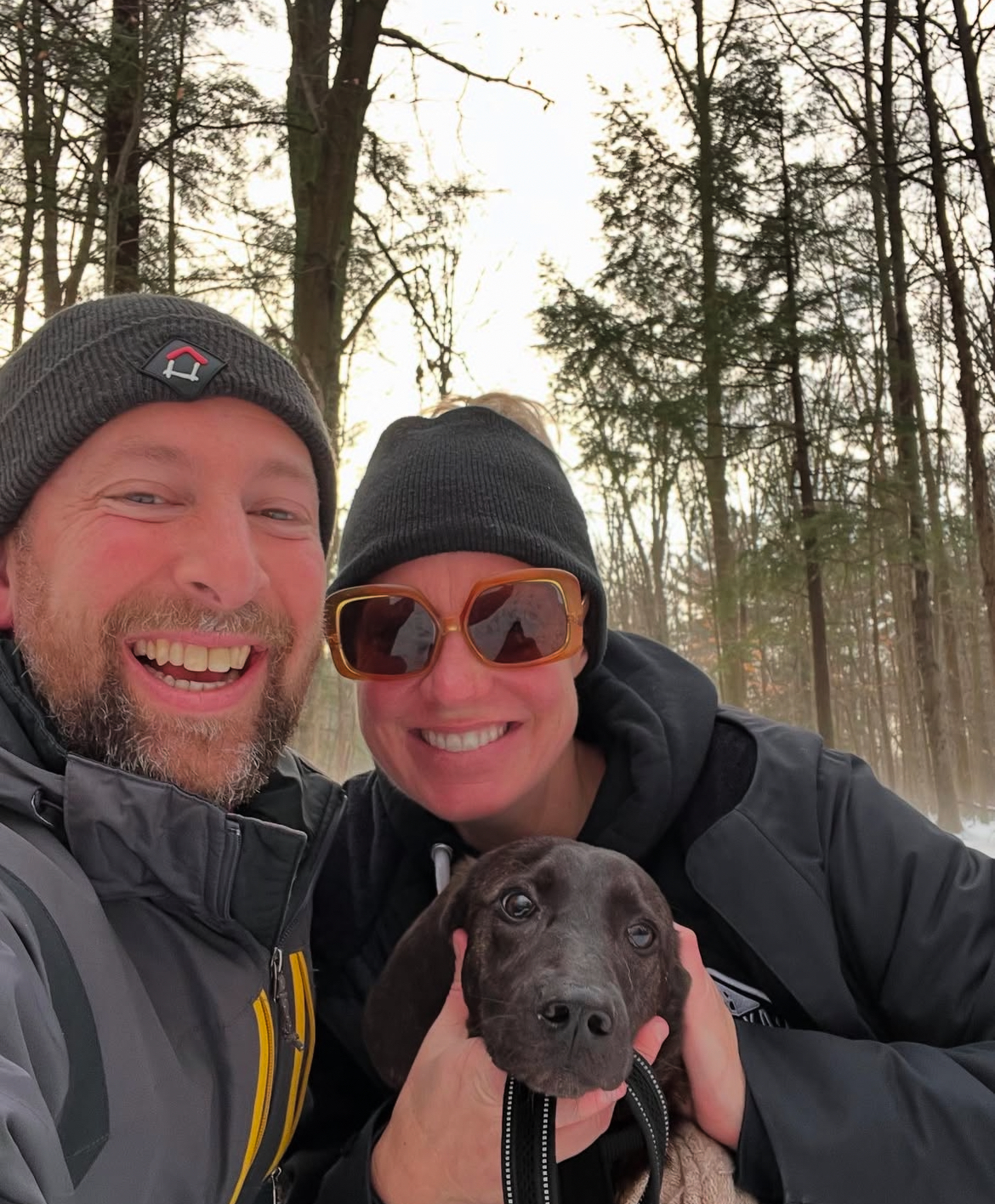A family is heartbroken and out thousands of dollars after the puppy they adopted from their local animal shelter had to be put down a month later.
“I think the hardest part is watching your kids go through it…. they’re teens, and immediately she (the puppy) had bonded with them, and with their struggles with anxiety. She was the perfect pet for them,” says Nicole Brickell.
Brickell and her husband have two teenage boys with and says the family was excited to welcome a new furry friend into their lives after their dog passed away from old age earlier in the year.
Having adopted a dog in the past, Brickell says the family knew they wanted to provide a home for another rescue dog, which is what brought them to the Ontario SPCA Orillia Animal Shelter.
She says in late November, they saw an adoption post for a six-month-old puppy named Charlie.
“Charlie was the first one that we met and immediately she was just lovely. She was calm in nature,” Brickell recalls.
Nicole Brickell with her new dog Charlie from the Orillia SPCA.
Supplied by Nicole Brickell
Before being adopted, Charlie had been spayed and had surgery for a hernia.
Brickell says they asked if there were any other health concerns they should be aware of, and she said that beyond an eye issue, which the animal was taking medication for, and needing to put on more weight, they were told the dog was healthy.
But what they thought would be a happy addition to the family quickly turned complicated, with the puppy not eating a lot, excessively thirsty, and acting very tired.
“Looking back on it now, her being six months at the time, she should have had more energy, but we thought that it was just that she was getting used to us,” Brickell recalls.
Nicole Brickell’s son pictured with their dog, Charlie, adopted from the Orillia SPCA.
Supplied by Nicole Brickell
The family brought the dog to several vets over a few weeks, but things only worsened.
“We thought we were getting a healthy dog, but it was more of the decline to the end of her life that we were experiencing and having our home as a hospice, which we didn’t know at the time,” Brickell recalls.
She says after the dog continued to vomit and become lethargic, they ended up at an emergency veterinarian. Blood tests showed the dog had kidney issues, and the family was quoted more than $10,000 for treatment.
Brickell says they tried calling the SPCA to find out what blood work was completed on the dog before the adoption, and were eventually told none had been done.
Facing a very high quote, she says the SPCA gave them the option of surrendering Charlie or getting a refund on their adoption fee and keeping her, but they would be required to cover the health-care costs.
Brickell says the family initially chose to surrender the dog, saying she felt pressured.
“I was syringe feeding her because she was just so lethargic and had no drive to drink or eat. I was spent, frustrated, angry, all these types of emotions (and) I feel (that) the manager wasn’t helping or being empathetic in the situation,” she recalls.
Nicole Brickell and her husband with their dog, Charlie, from the Orillia SPCA.
Supplied by Nicole Brickell
Brickell says the SPCA directed her to a different emergency veterinarian for care and that once there, they changed their minds and opted to go on a payment plan to cover the dog’s care.
“I had spoken with my husband, and we had come to the realization we can’t surrender her. We wouldn’t have access to her, and there’s a possibility that we wouldn’t be able to get her back,” she says.
After further testing and treatment, medical notes show the dog had renal dysplasia, meaning she was missing one kidney and that the second one was tiny.
Brickell says they were told the dog had days to weeks to live, and ultimately, they decided to put her down.
Now she says they are facing almost $8,000 in medical expenses and are upset after losing their new family addition in only 38 days.
“It’s hard because we had an idea as to what things would look like with a new puppy, and we totally were blindsided,” she says.
Brickell is questioning why blood testing, which could have shown kidney issues, wasn’t done when the dog was spayed before adoption.
Dr. Maggie Brown-Bury, executive member of the Canadian Veterinary Medical Association, said that it is considered best practice to do blood tests before any anesthetic event, like a spay or neuter, to ensure the animal will respond well to the anesthesia.
She says it also allows them to catch any “congenital issues with either the kidneys or the liver that may not be showing obvious symptoms yet, but could have a big impact on the anesthesia,” adding that it gives them an opportunity to catch those conditions so that “we can support the pet the best way possible.”
Six-month-old Charlie, adopted from Orillia SPCA.
Supplied by Nicole Brickell
But Brown-Bury says that while in most clinics it is mandatory, some do not require it because in 99 per cent of cases, the bloodwork comes back normal.
She says the cost for blood tests before an animal is spayed or neutered is typically around $100, and sometimes a congenital issue is not developed enough to appear.
“I think when it comes to something like a shelter where they are a not-for-profit organization, and they are trying to help as many animals as possible, they have to do sort of a cost analysis of any procedure or any protocol they want to have in place. And when it comes to spaying and neutering young animals, the vast majority are going to have normal blood work,” Brown-Bury says.
A spokesperson for the Ontario SPCA told Global News in an emailed statement that they were “deeply saddened by this situation and extend our heartfelt condolences to Charlie’s family during this difficult time.”
They said they have been in regular communication with the family since they first shared Charlie’s health concerns, and that the health and well-being of the animals in their care is “always our top priority.”
“We work with veterinarians who assess and treat each of these animals as necessary prior to them being made available for adoption. Charlie received this same veterinary care,” the statement says.
But Brickell feels more could have been done to uncover Charlie’s medical concerns before she was placed for adoption and hopes by speaking out, another family does not find themselves in a similar situation.
“We have immense debt now because of the medical expenses, not only to emergency visits but to other veterinarian visits that we had as well and all the procedures that she had. They (Ontario SPCA) refused, pretty much saying that this was on us even though they had provided us ultimately a sick dog.”



